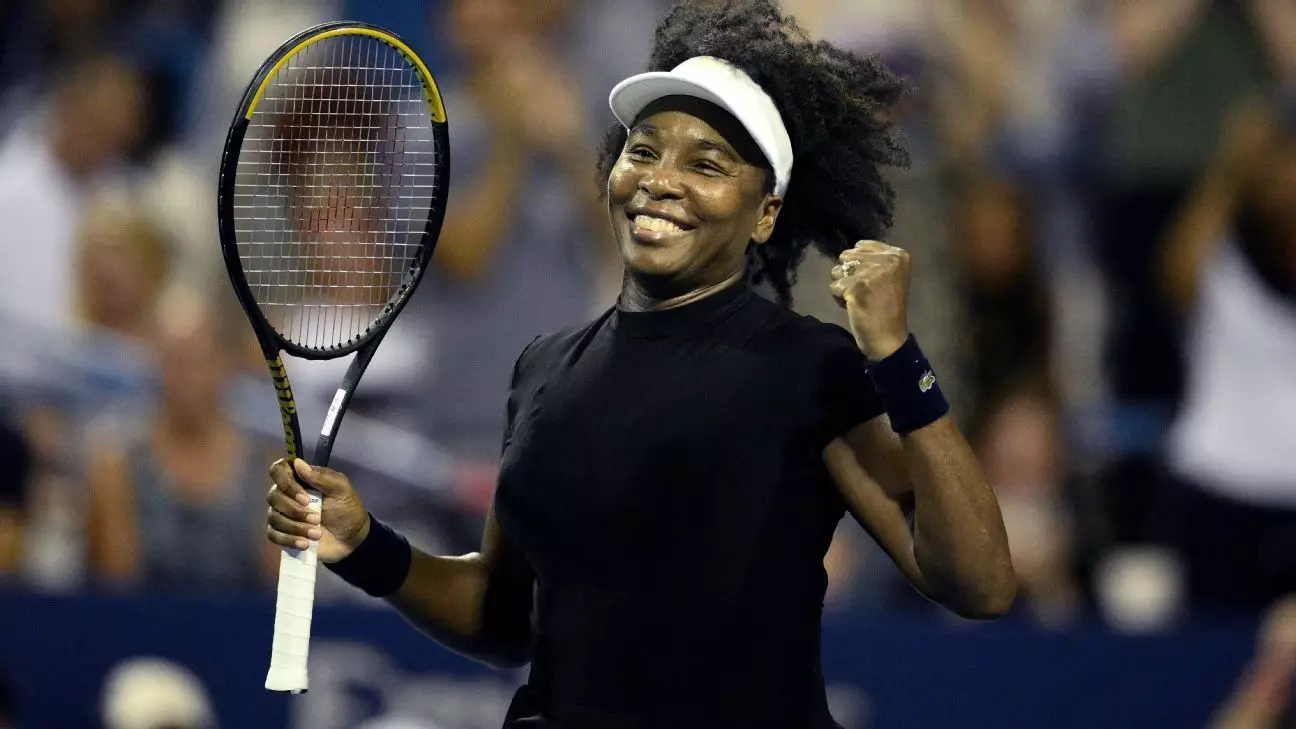Venus Williams’ recent victory at the DC Open is far more than a simple scoreline; it epitomizes the relentless spirit of an athlete who refuses to be defined solely by her age or setbacks. Her comeback is a testament to unwavering dedication, resilience, and a profound desire to prove that age is just a number when true passion and determination are present. At 45, her journey back onto the court symbolizes a broader message—one of hope for anyone who has faced obstacles, setbacks, or moments of doubt. This isn’t merely about winning; it’s about rewriting the narrative of what it means to continue competing beyond conventional retirement age.
Her triumph highlights how mental fortitude can sometimes outweigh physical prowess. Williams openly admits she grapples with fears, doubts, and fluctuating self-confidence, illustrating the universal struggle athletes face when returning from injury or a long hiatus. Yet her perseverance ultimately outshines these internal battles. Her ability to push through moments of inconsistency, particularly in the closing stages of her match, embodies an essential lesson: success often follows grit and struggle more than talent alone.
Breaking Boundaries in a Youth-Centered Sport
The tennis world is frequently viewed through the lens of youth, speed, and physical agility. Historically, players tend to fade from the spotlight as they approach their late twenties and early thirties. Williams’ resurgence disrupts this stereotype, challenging the sport’s perceived limitations on aging athletes. Her victory at such a venerable age, becoming the second-oldest woman to win a tour-level singles match, is a bold declaration that age is a variable, not a barrier. Martina Navratilova’s record at age 47 remains a distant but inspiring milestone, yet Williams’ achievement is fresh evidence that longevity, coupled with fierce competitive spirit, can still make an impact.
Her performance is not merely about personal achievement; it signals a shift in how the tennis community—and arguably professional sports as a whole—views aging athletes. Williams’ ability to compete at a high level after a period of inactivity and health challenges underscores that experience, tactical intelligence, and resilience can compensate and sometimes even surpass youthful explosiveness. Moreover, her presence fuels broader conversations about the potential to extend athletic careers and push the boundaries of human endurance.
Facing Internal Battles and External Expectations
What makes Williams’ return truly compelling is her candor about the mental challenges she faced. Her description of the “head game”—the fluctuating confidence levels, the doubts about her readiness—resonates deeply beyond sports, echoing anyone battling self-imposed limitations or societal expectations. Her journey underscores how psychological resilience is an integral component of athletic success, especially in the face of adversity.
Furthermore, her openness about the physical toll—recovering from surgery and maintaining good health—is a vital acknowledgment of the realities behind elite competition. It’s a reminder that athletic longevity isn’t solely dictated by desire but also hinges on strategic health management and a resilient mindset. Williams’ comments about prayer, health, and her unwavering focus on getting back in shape highlight a holistic approach to renewal—one that emphasizes mind, body, and spirit.
Her performance also attracted the spotlight because of her emotional connection with the fans and her own motivation. The crowd’s roaring support and her reciprocation through displays of raw passion reflect the deep bond between her and the sport. Her declaration that she wanted not just to participate but to win adds a layer of audacity and sincerity to her comeback, elevating it from a mere exhibition into a genuine competitive effort.
Inspiration or Reality Check for Future Generations?
Williams’ recent match raises questions about the future trajectory of professional tennis and sports at large. Can athletes defy the usual age constraints and continue competing at the highest levels? Her win proves that it’s possible, but it also sets a high bar—one that others will aspire to reach but must be prepared to meet through discipline and resilience.
Most notably, her victory sends a powerful message to aspiring athletes—especially women—about the importance of perseverance and embracing the possibility of return, regardless of setbacks or the passage of time. She embodies the idea that excellence isn’t confined to youth; it is cultivated through continuous effort and unwavering belief in oneself.
Yet, this return also serves as a reminder that striving for greatness at such an advanced age involves extraordinary sacrifices, sacrifices that few can sustain. Williams herself acknowledged the difficulty, emphasizing that good health and fighting through adversity are essential. Her journey may inspire, but it also underscores that such an achievement isn’t easily replicable and requires a superhuman level of commitment.
### Final thoughts
Venus Williams’ comeback defies conventional wisdom about aging in sports. Her dedicated effort, emotional resilience, and sheer willpower exemplify the enduring human spirit that refuses to accept limits. While her journey is still unfolding, what she has already achieved is enough to ignite hope and challenge perceptions—reminding us all that passion, persistence, and resilience can truly conquer age and adversity.


Leave a Reply